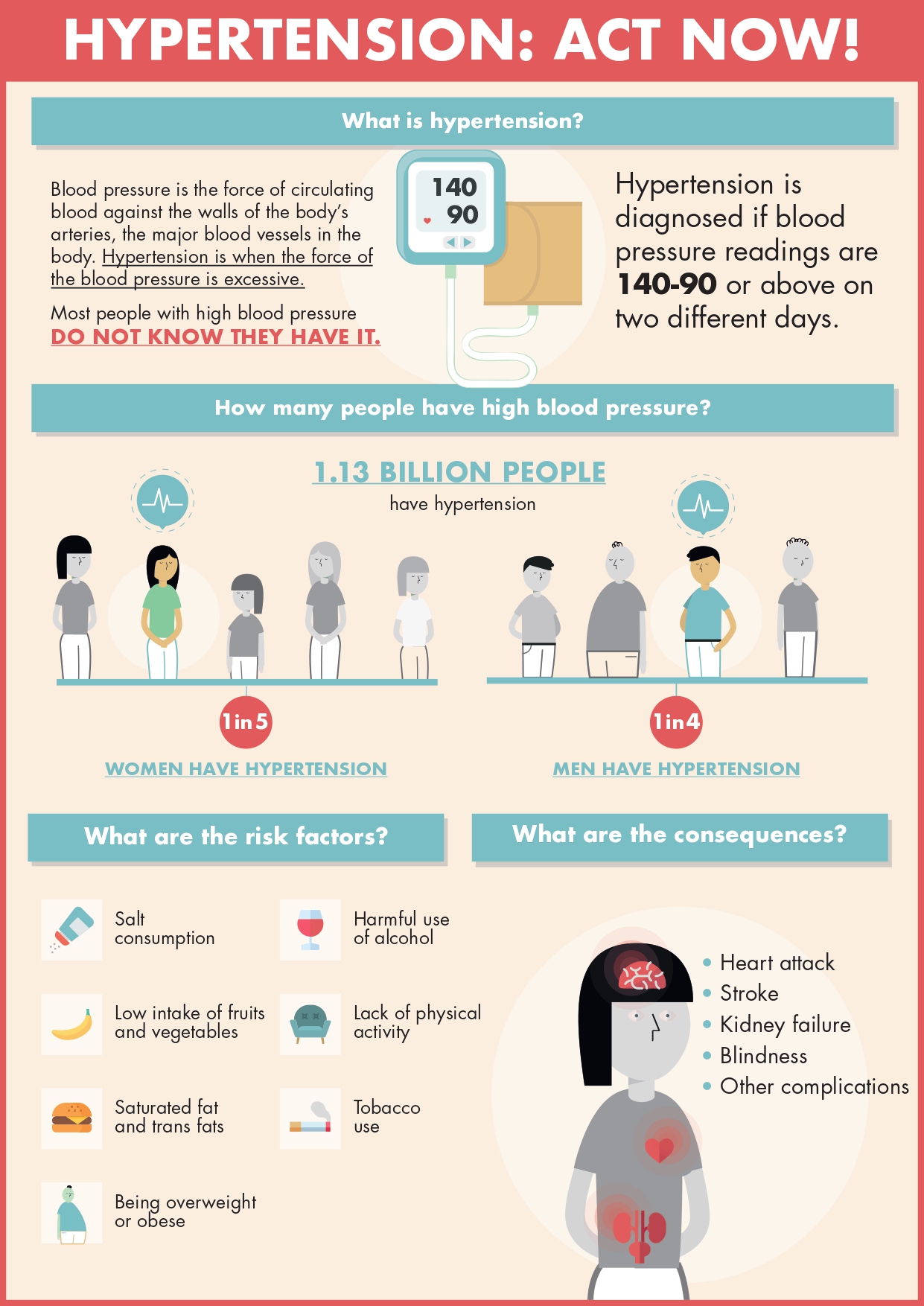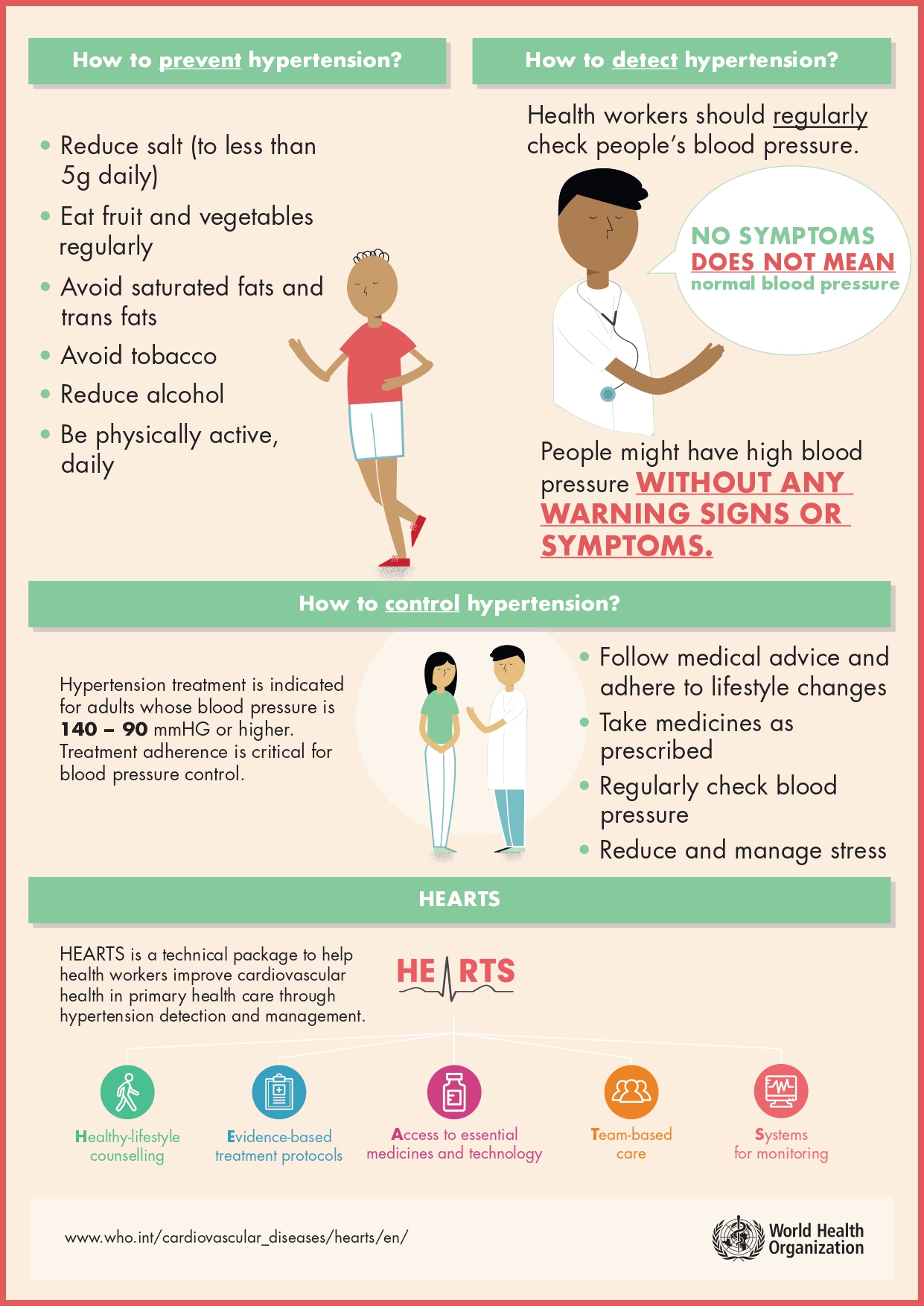
Did you know that one in four adults, approximately 230 million people suffer from hypertension (high blood pressure) in India? but only about 12% of these have their blood pressure under control. It can happen at all ages to both men & women alike.
Blood pressure is the pressure of blood pushing against the walls of your arteries. Arteries carry blood from your heart to other parts of the body. Blood pressure is recorded as two numbers, such as 120/80. The larger (Systolic) number denotes the pressure when the heart pumps out blood. The smaller (Diastolic) number is the pressure when the heart relaxes between two beats. A blood pressure reading above 140 millimetres of mercury (mm Hg) and more than 90 mm Hg is considered high blood pressure. Continued high blood pressure levels increase the risks of health problems such as heart disease, heart attack, and stroke.
A momentary spike in blood pressure can occur in stressful situations such as getting a health checkup, at a doctor's office, fear, excitement, excessive exercise, joy or trauma. This will go away after the stimulus subsides.
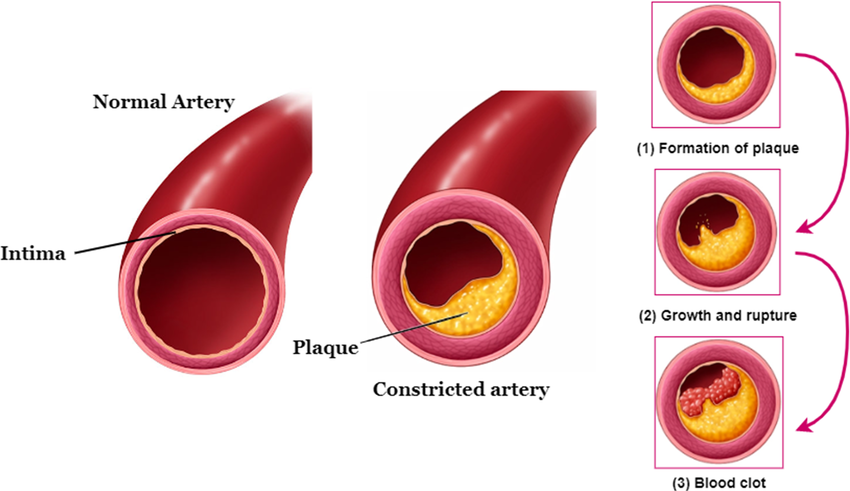
High blood pressure can damage blood vessels and body organs leading to severe complications such as:
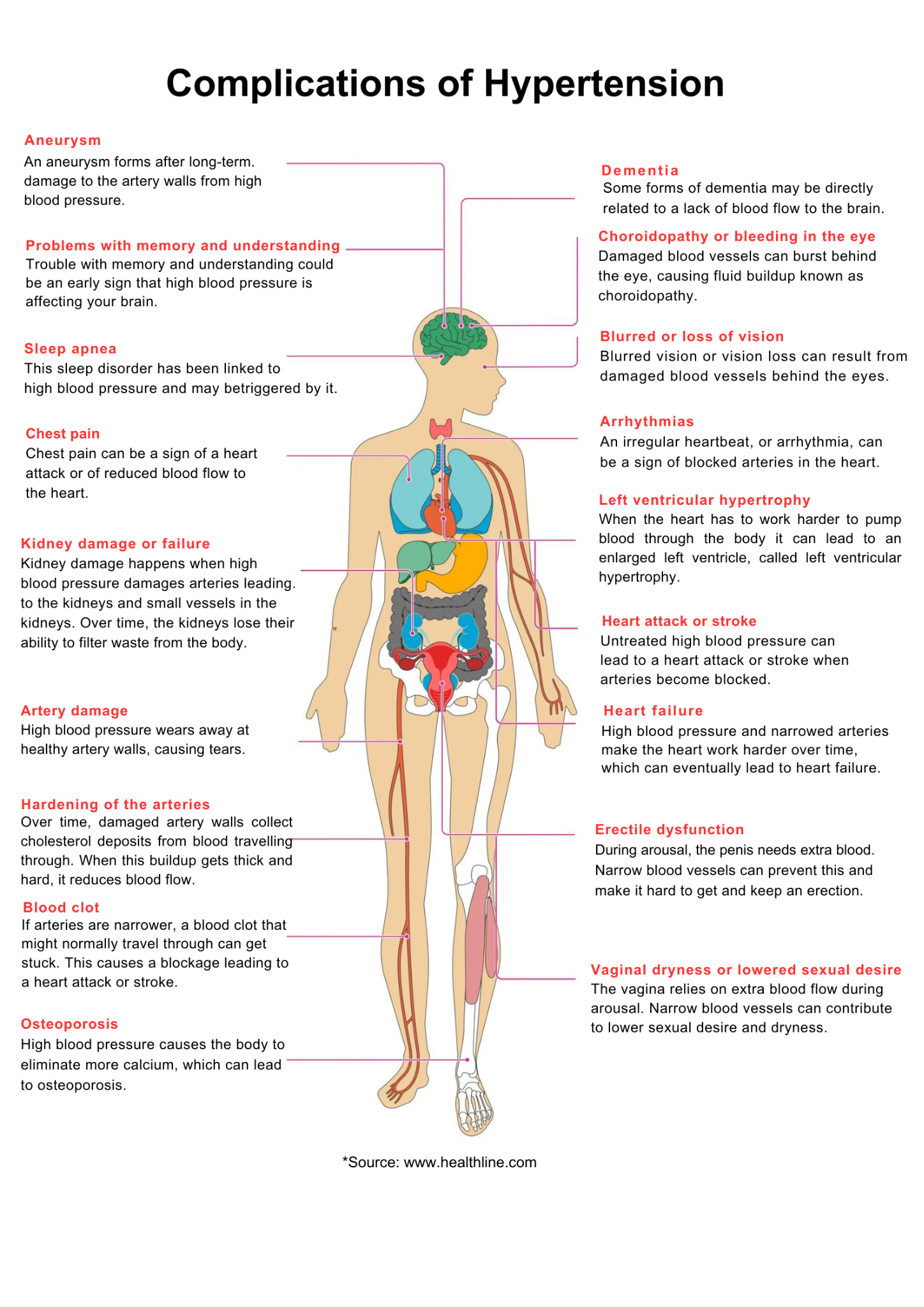
People with high blood pressure may not feel symptoms until it reaches an advanced stage. The only way to know is to get your blood pressure checked regularly. Severe high blood pressure can cause symptoms such as
If you are experiencing any of these symptoms and have blood pressure higher than 140/90 seek medical care immediately.
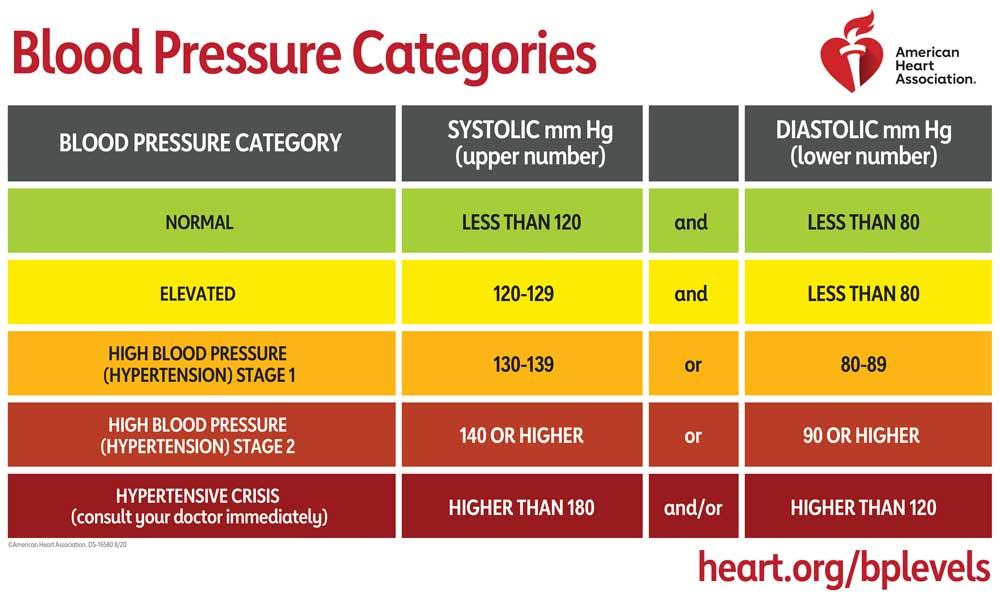
There are two types of hypertension- Primary which anyone can get and Secondary which is caused by underlying diseases. Primary and Secondary hypertension can co-exist.
Primary hypertension is prevalent in about 90% of affected people, it develops gradually due to any one or a combination of several factors such as:
Secondary hypertension is caused by other underlying diseases or some medications such as:
Secondary hypertension can improve or even go away when the underlying disease is identified and treated effectively.
BP conditions can be managed by regular monitoring, medication and lifestyle changes. Seek your doctor's advice for a comprehensive treatment plan.
A variety of medicines is available, however, the doctor will customise the salt, doses, and timings of intake, to suit the patient's overall condition. Compliance with prescriptions is crucial for maintaining a healthy BP. Remember to inform the doctor of other medications that you normally take. Do not self-medicate, miss or adjust doses independently. Never copy or try medicines that your friends or family members take. Keep sufficient stock of your BP medicines handy at all times especially while travelling.
Be cautious not to consume alcohol, salt or caffeine immediately after taking medicines.
If High BP is ignored for a long time it can result in serious consequences. This is why regular monitoring of blood pressure is crucial to contain it.
Regular monitoring: Blood pressure can be easily checked by health care professionals, however, you can measure it at home with a Blood Pressure Monitoring instrument. This helps to keep track of your readings, early detection of any changes and timely intervention if needed. Remember to calibrate the readings of your home instrument with your doctor's instrument.
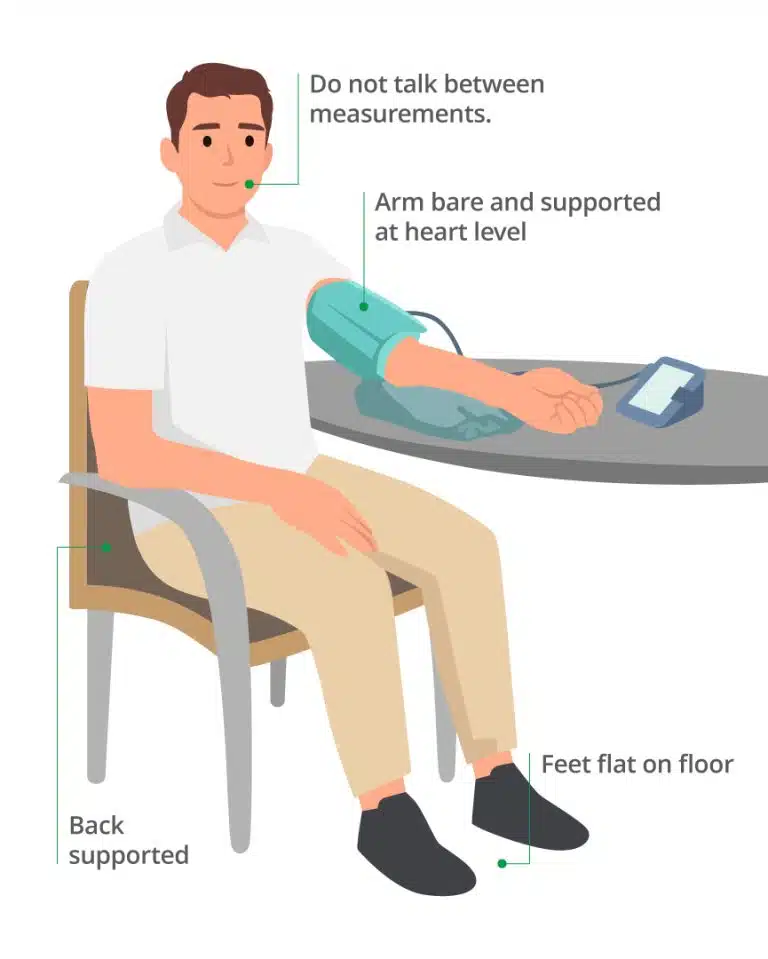
Hypertension is a silent killer as symptoms show up much later or go undetected. It is a serious disease that affects young and old, men and women alike and can happen at any time during your lifetime. Current lifestyle, work pressures and increased stress levels are affecting younger people and the incidence is increasing. Being alert, monitoring your blood pressure regularly, following medications prescribed and adopting the tips given for a healthy lifestyle can help avoid serious harm.
